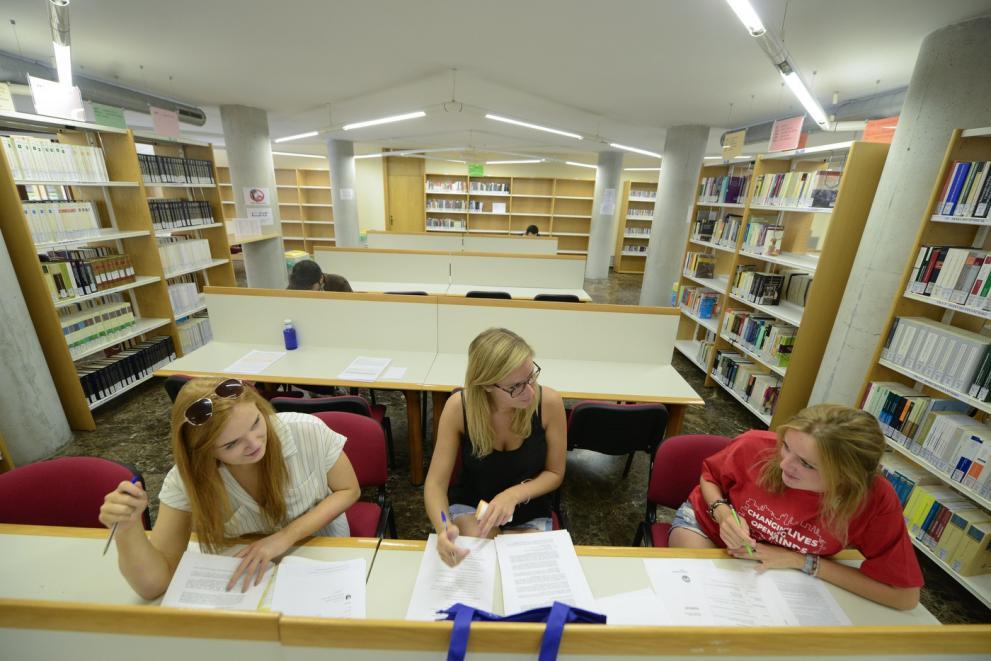
The sudden switch to online learning demonstrated the importance of digital remote solutions for teaching and learning. Erasmus+ continues to play a vital part in preparing people and organisations with €200 million made available last year specifically for the digital transition. In 2020, the total budget of Erasmus+ amounted to €3.78 billion - €506 million more than 2019, an increase of 15%. After 33 years of implementation, Erasmus+ remains resilient, even in the challenging context of 2020, supporting a cumulative 11.7 million participants since its launch in 1987.
Vice-President for Promoting our European Way of Life, Margaritis Schinas, said: ”This report shows the resilience and the quality of EU's flagship exchange programme, Erasmus+. Despite the mobility reduction due to the pandemic, Erasmus+ remained one of the EU's most successful and iconic programmes. In 2020, Erasmus+ was more inclusive than ever and fostered increased participation of people from disadvantaged backgrounds. With funding of €22 million we linked our words with concrete actions.”
Commissioner for Innovation, Research, Culture, Education and Youth, Mariya Gabriel, said: “Following the successful implementation of the Erasmus+ programme in 2020, the new generation of the Erasmus+ programme in 2021 built on the success, the established networks and the popularity of previous years. Erasmus+ is European cooperation at its best. From primary school to lifelong learning for adults, and sport, everyone can benefit from the many opportunities that the Erasmus+ programme has to offer.”
Today, we are presenting the most noticeable elements of the report. Once again, in 2020, the Erasmus+ programme reached out to a high number of participants and beneficiaries:
- In the field of higher education, more than 323,000 students and student trainees as well as 44,000 staff spent a learning, training or teaching period abroad;
- More than 185,600 mobility activities for learners and staff in the vocational education and training sector were co-funded;
- Almost 180,000 young people and youth workers benefited from Erasmus+ funding, either in the form of youth exchanges or opportunities for youth workers;
- The European Week of Sport reached a new record with over 15.6 million European participants in 32,600 events.
In 2020, the European Universities alliances grew further, now comprising 280 higher education institutions across Europe. European Universities are transnational alliances that increase the quality and attractiveness of European higher education and boost deep, strategic long-term cooperation between institutions, benefitting their students, professors and other staff.
Erasmus+ is a widely spread programme in terms of geographic participation. In 2020, 34 countries participated in the programme in 2020: all 27 EU Member States, plus the United Kingdom, Iceland, Liechtenstein, Norway, North Macedonia, Serbia and Turkey. The programme is also open to partner countries across the world. Erasmus+ international activities continued to contribute to the Commission's overall geopolitical priorities with a focus on the Western Balkans, Eastern and Southern Neighbourhoods, and Africa with over half of the international budget allocated to the European neighbourhood (South Mediterranean, Western Balkans and Eastern Partnership).
Background
Since 2014, Erasmus+ has become broader and more innovative, providing opportunities for study periods abroad, traineeships, and apprenticeships for both higher education and vocational education and training students. It offers youth exchanges and staff exchanges in all fields of education, training and youth, as well as projects in the field of sport.
The statistical annex to the 2020 Erasmus+ report offers comprehensive information about the different actions and their budget, along with detailed information on the number of projects, participants and organisations. Data per country is also available for selected actions. Qualitative information on the Erasmus+ projects is available through the Erasmus+ Project Results platform, a database giving free access to descriptions, results and contact information for all projects funded under the Erasmus+ programme in education, training, youth, and sport.
For More Information
Details
- Publication date
- 16 December 2021
- Author
- Representation in Cyprus
